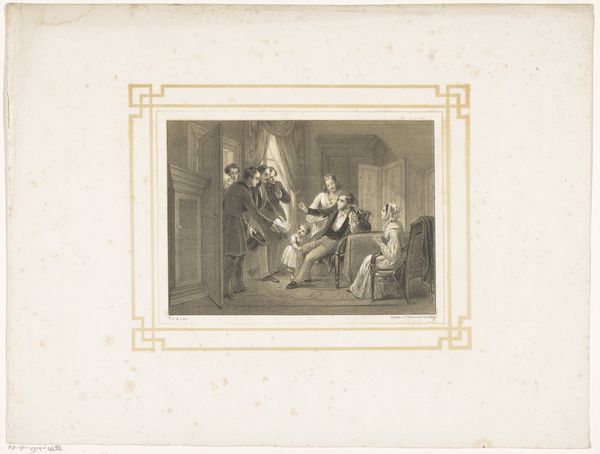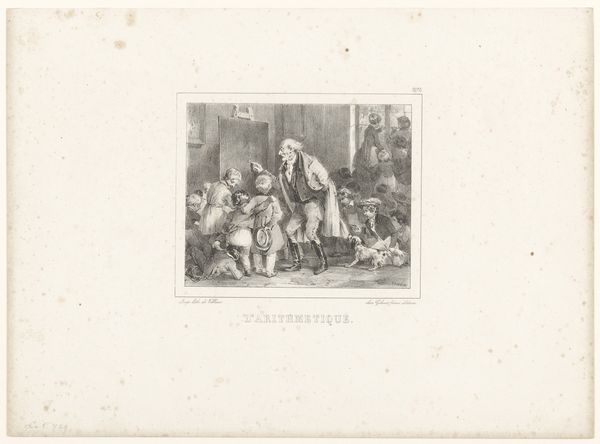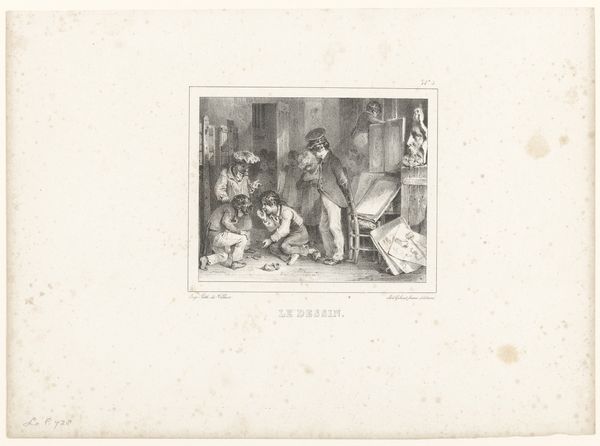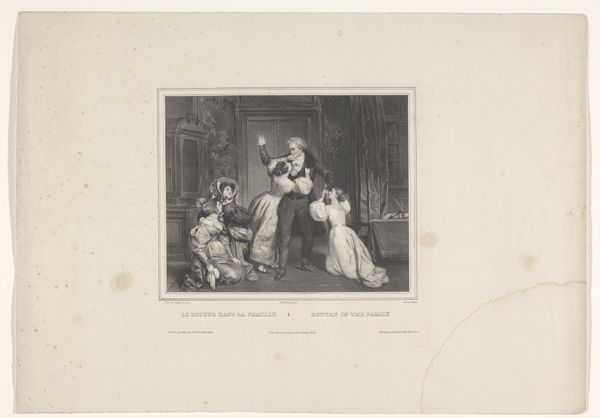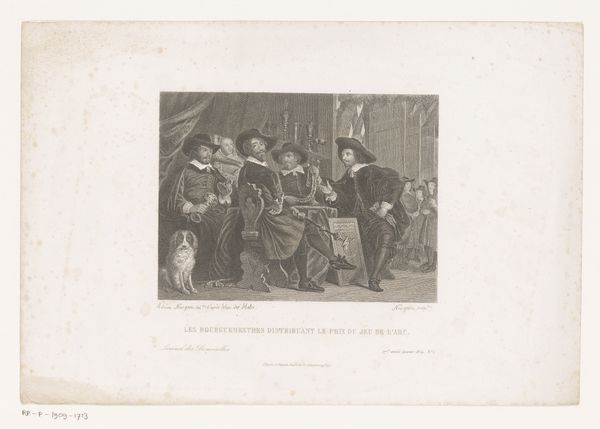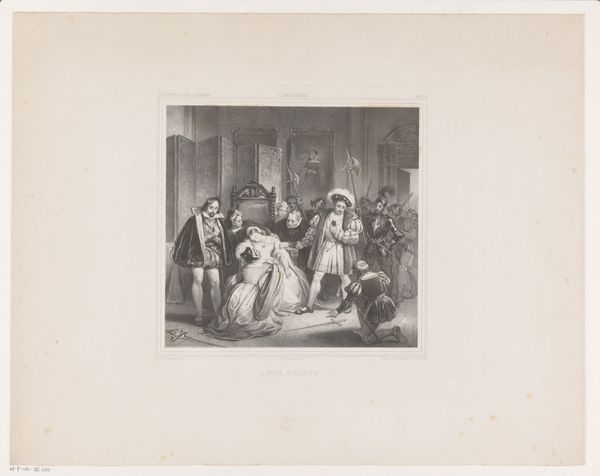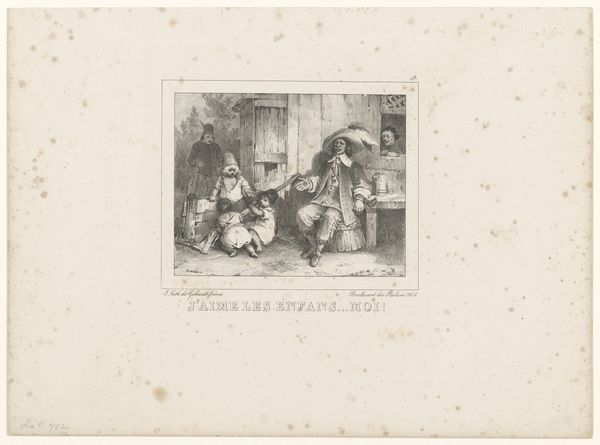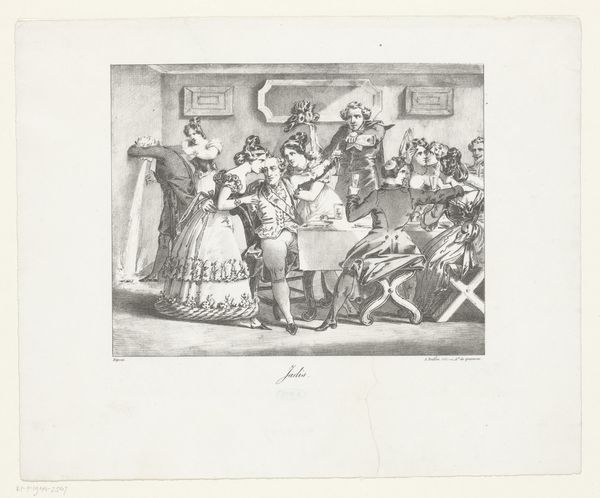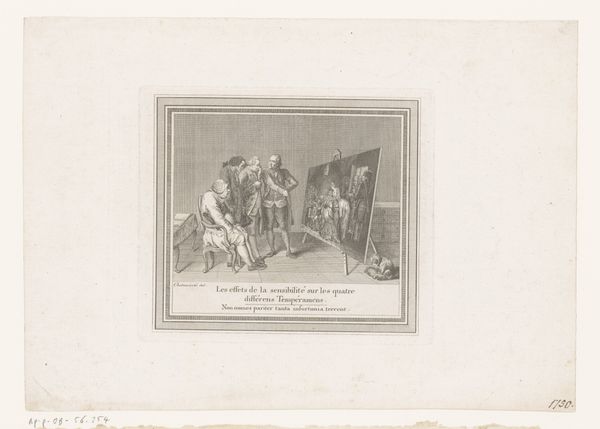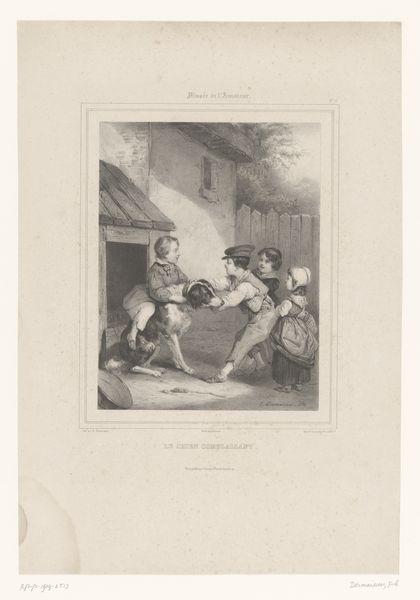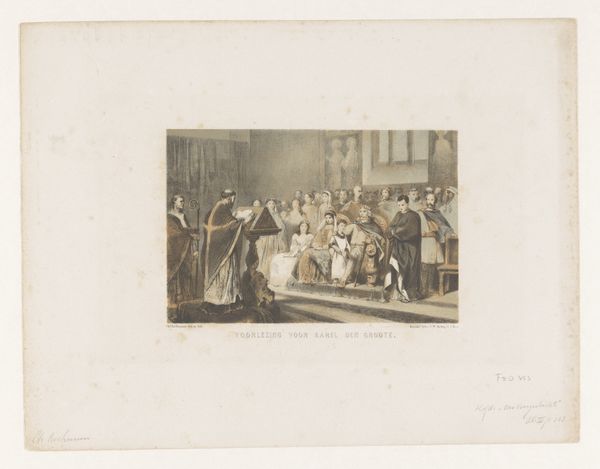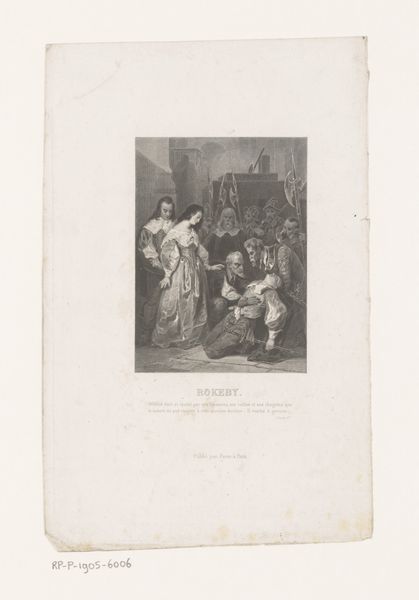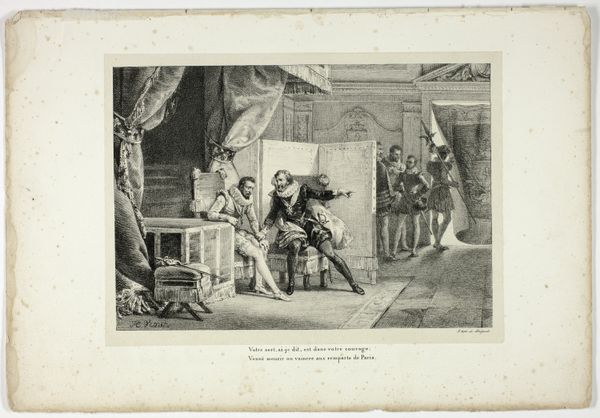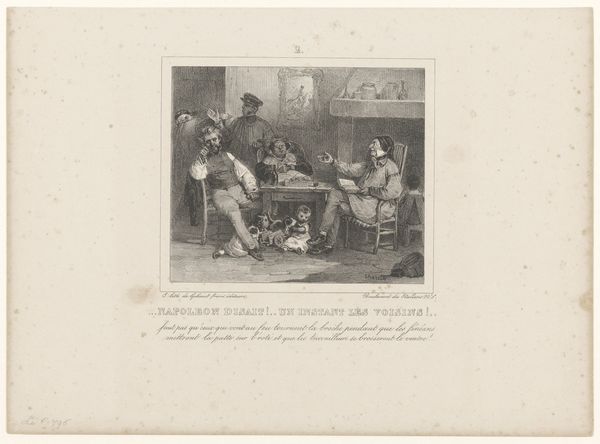
#
photo of handprinted image
#
light pencil work
#
photo restoration
#
ink paper printed
#
light coloured
#
old engraving style
#
white palette
#
retro 'vintage design
#
feminine colour palette
#
pencil work
Dimensions: height 181 mm, width 214 mm
Copyright: Rijks Museum: Open Domain
Curator: "Alchemist," created between 1717 and 1783 by Jacques Philippe Le Bas. You can currently find it here at the Rijksmuseum. Editor: My first thought is this image captures a moment of frenzied inspiration or, dare I say, a stroke of madness? It feels chaotic yet somehow meticulously detailed, like a beautifully cluttered mind. Curator: It's intriguing to frame it that way. Given the social and historical contexts, alchemy was at a critical juncture during Le Bas's active years. Viewed as a field with intersections into early science but also heavily steeped in mysticism and charlatanism, the figure's passion reads as one of the few times those involved were considered radical thinkers instead of occultists. Editor: You've pinned it! I think the slightly unhinged pose and crowded workspace contribute. I bet his colleagues saw it less as intellectual rebellion and more as eccentric nonsense. Still, I'm fascinated by the lighting – it creates a sort of theatrical spotlight on the alchemist's face. Curator: And don't forget the political dimensions inherent in scientific pursuits of the era! Think about patronage, think about the shifting powers in Europe, and consider how the patronage of scientific or pseudo-scientific figures reflects or challenges the status quo. Alchemists, in many ways, played a part in this social drama. Editor: Totally. It’s almost as though Le Bas wants us to see the humour in that. Is the figure enlightened or simply a loon? Or, dare I say, is there any real difference? And then that tableau in the background. It is fascinating. I wonder what those two other men are involved with. Curator: In the context of class and power, we have to consider who had access to knowledge. How the exchange of ideas, even erroneous ones, impacted social mobility or perpetuated existing hierarchies. It's interesting to consider what we think we know, and who allows or facilitates those claims of knowledge. Editor: Food for thought. And maybe, just maybe, Le Bas slipped in a secret formula in there that nobody else knew. Thank you! Curator: Thank you as well! An alternative view never hurts.
Comments
No comments
Be the first to comment and join the conversation on the ultimate creative platform.
